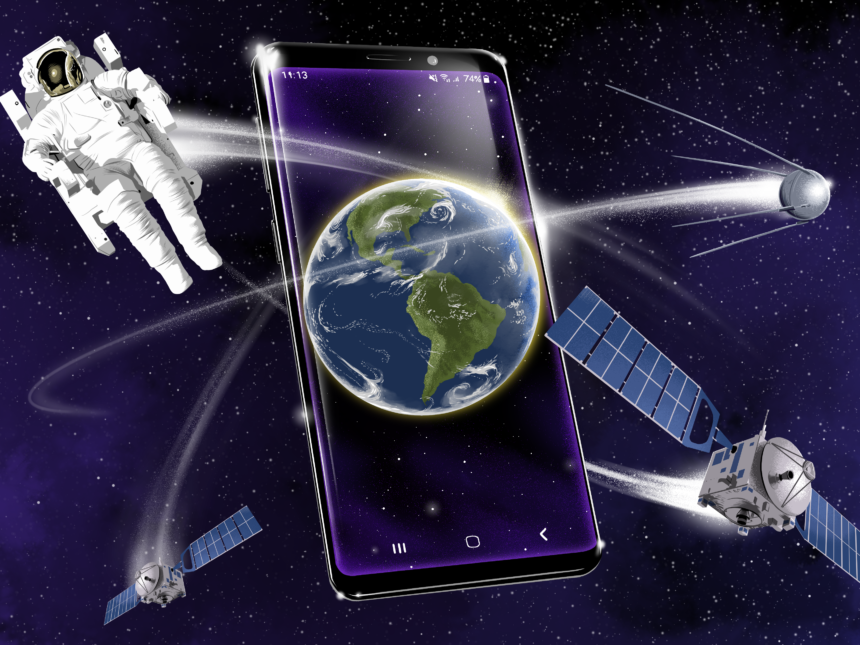The rapid evolution of space technology is revolutionizing how humanity explores the cosmos and improves life on Earth. Over the past few decades, advancements in satellite technology, space exploration, and deep-space missions have expanded the boundaries of human knowledge. These technological leaps are not only enhancing communication and navigation but also fostering scientific discovery and economic growth.
As governments and private enterprises invest in space exploration, the industry is experiencing an unprecedented boom. From commercial satellites to interstellar probes, cutting-edge developments are shaping the future of human civilization. This article explores the critical innovations driving the space sector and the immense potential they hold for future generations.
The Role of Satellite Technology in Modern Society
Satellite technology plays a crucial role in various aspects of modern life. From global positioning systems (GPS) to weather forecasting, satellites have become indispensable tools for communication, environmental monitoring, and disaster management. Advances in miniaturization and cost reduction have made satellite launches more accessible, leading to an increase in small satellite deployments.
Commercial enterprises, space agencies, and startups are leveraging satellite technology to enhance data collection and connectivity. The rise of low-Earth orbit (LEO) satellite constellations, such as SpaceX’s Starlink and Amazon’s Project Kuiper, aims to provide high-speed internet to remote regions. These innovations are bridging the digital divide and unlocking new economic opportunities worldwide.
Innovations in Space Exploration
Humanity’s quest to explore the vast expanse of space is being fueled by groundbreaking technologies. Robotic missions to Mars, the Moon, and beyond are gathering valuable data that could pave the way for future human settlements. NASA’s Perseverance rover, for instance, is actively searching for signs of ancient life on Mars, while China’s Chang’e program is advancing lunar exploration.
Additionally, space agencies and private companies are developing next-generation propulsion systems, such as ion thrusters and nuclear-powered spacecraft, to enhance deep-space travel. These advancements could reduce travel time and increase the efficiency of interplanetary missions. With the rise of commercial space tourism, companies like SpaceX, Blue Origin, and Virgin Galactic are working to make space more accessible to the public.
The Growth of Commercial Space Enterprises
The commercialization of space is transforming the industry into a competitive marketplace. Private companies are playing a pivotal role in developing reusable rockets, satellite networks, and lunar landers. The shift from government-funded projects to private-sector investments has accelerated the pace of innovation.
Entrepreneurs are seizing opportunities in satellite communications, Earth observation, and space manufacturing. For example, companies like Rocket Lab and Relativity Space are creating cost-effective launch solutions, while asteroid mining ventures aim to extract valuable resources from celestial bodies. The future of space commerce holds promise for economic expansion and scientific advancement.
The Future of Human Spaceflight
The dream of human colonization beyond Earth is becoming more realistic due to advances in spacecraft design, life support systems, and artificial intelligence. Space stations like the International Space Station (ISS) serve as testbeds for long-duration space missions. NASA’s Artemis program is working toward establishing a sustainable human presence on the Moon, which could serve as a stepping stone for Mars exploration.
Technological innovations, such as 3D printing in space and self-sustaining habitats, are essential for long-term survival beyond Earth. Researchers are exploring the use of artificial gravity and radiation shielding to ensure astronaut safety. These advancements will be critical in shaping the future of interplanetary travel and deep-space colonization.
Challenges and Ethical Considerations

Despite its potential, space technology faces numerous challenges, including space debris, cybersecurity threats, and international regulations. The growing number of satellites in orbit increases the risk of collisions, leading to potential disruptions in communication networks. Efforts to implement space traffic management systems are essential to maintaining the sustainability of orbital operations.
Moreover, ethical considerations surrounding space exploration, such as the ownership of celestial bodies and the environmental impact of space missions, require global cooperation. As space becomes more accessible, responsible exploration and resource utilization must be prioritized to prevent conflicts and preserve the cosmic environment.
Conclusion
Space technology is ushering in a new era of innovation and exploration that has the potential to transform human civilization. From advancements in satellite technology to interplanetary travel, the possibilities are endless. As the industry continues to evolve, collaboration between governments, private enterprises, and research institutions will be essential in unlocking the mysteries of the universe.
With continued investment and scientific breakthroughs, the future of space exploration holds incredible promise. Whether through enhancing Earth’s technological infrastructure or paving the way for life beyond our planet, space technology remains one of the most exciting frontiers for human ingenuity and progress.
